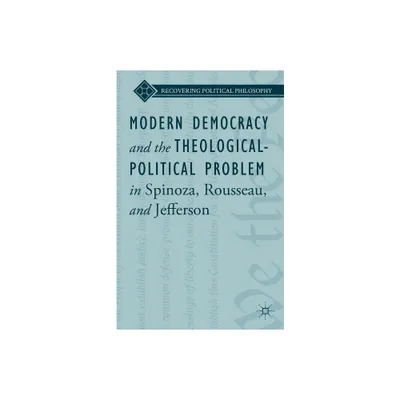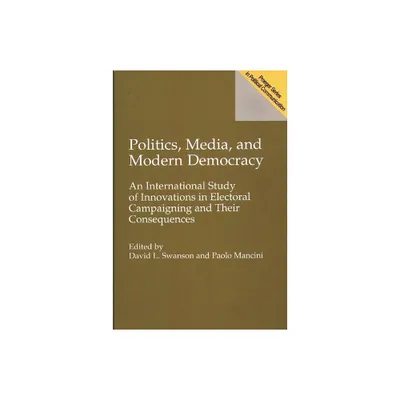Home
Pluralism and Corporatism: The Political Evolution of Modern Democracies
Loading Inventory...
Barnes and Noble
Pluralism and Corporatism: The Political Evolution of Modern Democracies
Current price: $45.99


Barnes and Noble
Pluralism and Corporatism: The Political Evolution of Modern Democracies
Current price: $45.99
Loading Inventory...
Size: OS
*Product Information may vary - to confirm product availability, pricing, and additional information please contact Barnes and Noble
First published in 1980. In
Pluralism and Corporatism
the author examines the ‘pluralist' conception of democratic advanced industrial societies and shows to what extent an alternative conception the ‘corporatist'society is more appropriate today. The book reviews criticisms of standard conceptions of industrial society and draws empirical support for some new approaches from the politics of Britain, France, Germany, Holland, Belgium, Italy, Japan and the United States: an analysis which shows that there are tendencies everywhere towards the fragmentation of government responsibility and its assumption both by governmental and organised group bureaucracies. The author argues that this pattern of policy-making is in fact in conflict with standards of behaviour which are fundamental to the ideal of representative and accountable democratic government.
Both critical review and analysis are organised in a way which will maximise the usefulness of Pluralism and Corporatism as a theoretical complement to those more standard texts in comparative government which already provide a study in-depth of individual countries. It seeks to review changing political culture, political economy, party and interest intermediation, bureaucratic influence, constitutional effects on political behaviour and the international constraints upon government which arise from interdependence. It will become essential reading for courses on the politics of advanced industrial societies and particularly of Western Europe.
Pluralism and Corporatism
the author examines the ‘pluralist' conception of democratic advanced industrial societies and shows to what extent an alternative conception the ‘corporatist'society is more appropriate today. The book reviews criticisms of standard conceptions of industrial society and draws empirical support for some new approaches from the politics of Britain, France, Germany, Holland, Belgium, Italy, Japan and the United States: an analysis which shows that there are tendencies everywhere towards the fragmentation of government responsibility and its assumption both by governmental and organised group bureaucracies. The author argues that this pattern of policy-making is in fact in conflict with standards of behaviour which are fundamental to the ideal of representative and accountable democratic government.
Both critical review and analysis are organised in a way which will maximise the usefulness of Pluralism and Corporatism as a theoretical complement to those more standard texts in comparative government which already provide a study in-depth of individual countries. It seeks to review changing political culture, political economy, party and interest intermediation, bureaucratic influence, constitutional effects on political behaviour and the international constraints upon government which arise from interdependence. It will become essential reading for courses on the politics of advanced industrial societies and particularly of Western Europe.


















